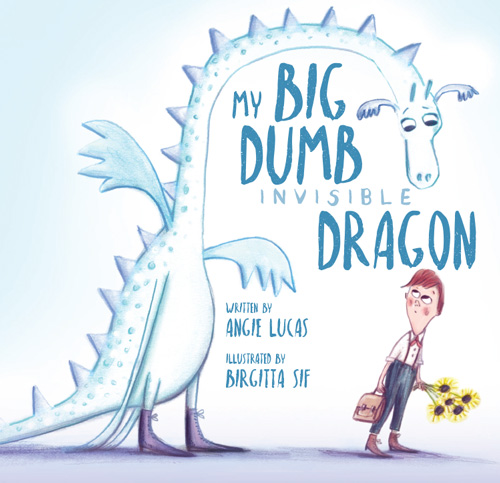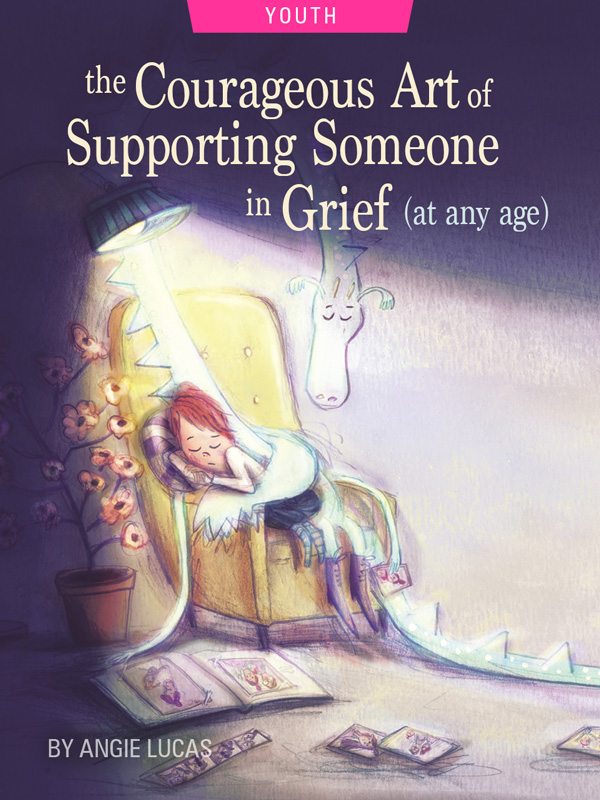
A children’s book author shares some practical ways we can show up differently for grief — our own and that of others
—

As a culture, we’re not great at supporting the grieving, to say the least. We don’t know what to say. We don’t know what to do. We feel helpless, inadequate, ill-equipped. And as much as we say, I can’t imagine what you’re going through, I don’t think that’s true.
We can imagine it. And it terrifies us.
It’s our terror that makes us ask, “was she a smoker?” when we find out someone has died of lung cancer or “was he an addict?” when we hear of a suicide. If we can assign the teensiest trace of blame, we can soothe ourselves into thinking we’ll avoid a similar fate — for us or our loved ones.
It’s our terror that makes us say things to a grieving person that are really designed to make us feel better. When we attempt to paint a silver lining around someone else’s emotional devastation — we’re simply discharging our discomfort onto them, at one of the most vulnerable moments of their life.
It’s our terror that causes us to withdraw. As sociologist Dr. Brene Brown says, “Empathy is a choice, and it’s a vulnerable choice. Because in order to connect with you, I have to connect with something in myself that knows that feeling.” When you see the naked pain of grief on someone’s face, walking straight into that storm of emotions isn’t the easy choice, but it is the empathic one.
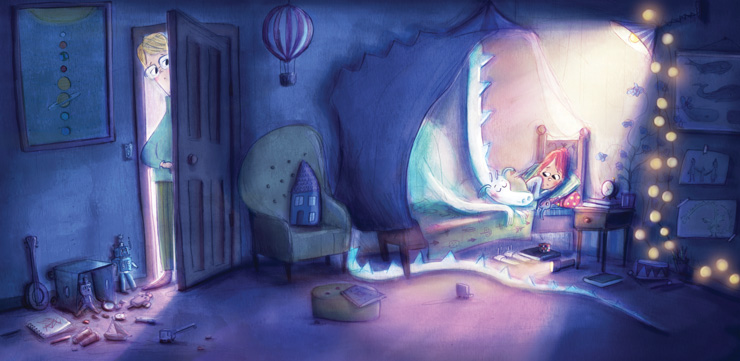
So the next time you’re standing there, uncertain, in the face of unutterable sorrow, here are seven ideas for you to try.
1. Brush Up on What Not to Say
It’s a sad irony that many of the phrases that come to mind when we want to comfort someone in their grief are not very comforting at all. Just ask a grieving person how they feel about the following platitudes, so often written on condolence cards and whispered soothingly at funerals:
“Everything happens for a reason.”
“I know how you feel.”
“They’re in a better place.”
When my dear friend, Kelli, was newly reeling from the loss of her teenage daughter, her mother, and her stepfather in a head-on collision — that ‘better place’ cliché was particularly painful. Mackenzie was a vibrant, happy, beloved 16-year-old who was brimming with kindness, curiosity, and limitless potential. Kelli wanted to ask, It’s better for her to NOT be here with her mother and her family? To never grow up, go to college, make friends, fall in love, or have a family of her own?
I can’t tell you the exact right thing to say, but I do know that showing up imperfectly beats not showing up at all.
Instead, start with “I’m so sorry,” “I love you,” “I’m here for you,” or “I can’t stop thinking about you.” You don’t have to explain someone’s loss to them, put it in context, or tell them how they should feel. Offers of love, sincere friendship, and connection are what a grieving person needs most.
2. Ask a Grief Expert
Whether or not you’re acquainted with a grief counselor or trained therapist, you probably know someone who has grieved deeply. Ask what helped them through it — and what didn’t. They have wisdom to offer, and they may relish the opportunity to share.
When I first heard the news of Mackenzie and her grandparents’ deaths, not only was I plunged into personal grief, because I loved her dearly, but my heart was also shattered at the magnitude of Kelli’s loss. Daughter. Mom. Stepdad. What could I possibly say or do to offer comfort at a time like this?
So I turned to another friend, Wendy, who had navigated the tragic death of her brother years before and shortly after that, a sister-in-law, both leaving young children behind. As expected, she offered a wealth of information and ideas.
3. Err on the Side of Being Available
I knew Kelli and I were good friends, but I didn’t want to presume just how close we were. I worried about intruding. What if I wasn’t really needed? What if she had a dozen closer friends running to her rescue? When I brought my concerns to Wendy, she said, “Err on the side of being more available than less.” It was excellent advice.
I decided that if I was going to make a wrong move here, I’d rather show too much love and support than not enough.
I’ve kept that advice in mind in the years since, and it helps me feel more confident about going with my gut. I don’t know about you, but there’s something inside of me that seems to whisper, Hey, you’re needed on this one in certain situations, although I tend to second-guess these impressions. Now, if I have a recurring thought to reach out to someone, I do my best to follow through.
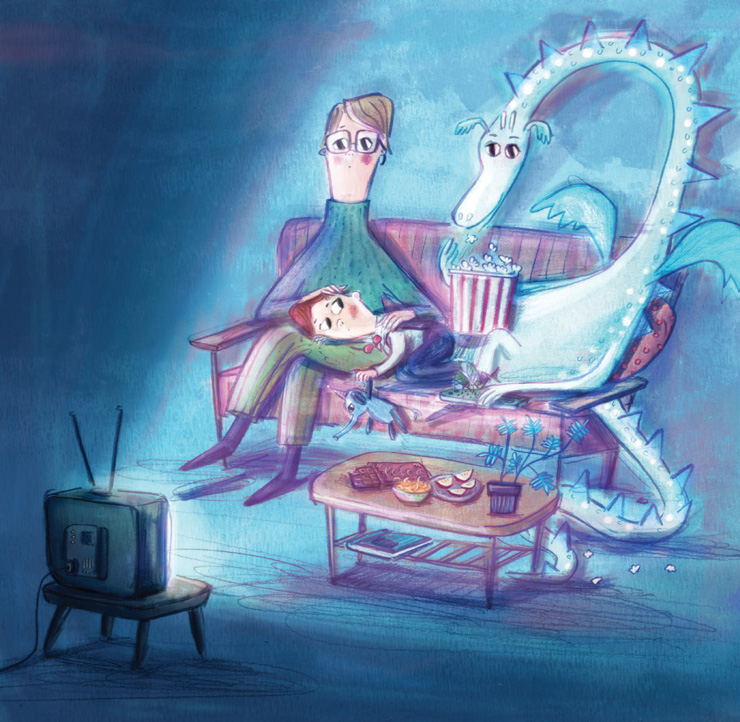
4. Look for Unfulfilled Needs
When Wendy’s brother died, she was a brand-new mom, and her pre-pregnancy clothes didn’t quite fit yet. Barely coping as it was, Wendy was paralyzed at the thought of finding a dress for the funeral, especially since she knew whatever she wore would be a painful reminder from that day forward. A woman from her church congregation showed up one day with the perfect remedy. She asked Wendy’s size, purchased a selection of dresses, and dropped them by Wendy’s house, circling back a few days later to pick up and return whatever Wendy didn’t want.
Inspired by this gesture, I offered the same service to Kelli. What to wear was the last thing on Kelli’s mind, but she graciously agreed and was grateful to not have to face cashiers and fitting-room attendants. For my part, I was grateful to have an active, useful errand, but even more grateful to help Kelli.
5. Don’t Rush Grief
Profound grief isn’t something a person ever ‘gets over’.
Life doesn’t go back to normal. Instead, those left behind can only hope to find a new normal.
As you regularly check in with a grieving friend, never pressure them to feel a certain way by a certain deadline. Don’t express surprise that they’re still struggling, no matter how long it has been since the loss. Don’t compare their grief or their healing to anyone else’s. You can, however, gently suggest that they talk to a counselor or attend a grief group. The Dougy Center, a national center for grieving children and families, maintains a list of 500 grief centers nationwide, which you can search by city or state.
At the same time, give your friend space to talk about the person they’re mourning. Mention their loved one by name. Reassure your friend that they won’t be forgotten. Reach out to them on their loved one’s birthday, death anniversary, or any major holiday that is likely to rekindle feelings of loss (spoiler alert: most holidays do). Add significant dates to your calendar, so they’re easy to remember year after year. Even a simple ‘thinking of you this month’ text can help your friend feel less alone.
6. Have a Go-To Gift
Sometimes we’re not in a grieving person’s close circle of friends, but we still feel a desire to offer love and friendship. For these situations, I like to keep a few go-to gifts on hand, so it’s easier for me to act on the impulse to reach out. If I have to go shopping for a gift or think about it too much, the moment may pass.
Children’s picture books make beautiful gifts for grieving children and adults alike. I love The Rabbit Listened by Cori Doerrfeld, which is great for myriad challenges, from death to divorce to not making the team to an unwanted move. I have three copies of the book, and three stuffed rabbits, ready and waiting for someone to need them next. I’ve also given away and repurchased Ida, Always by Caron Levis and Charles Santoso multiple times, a beautiful story based on true events about a polar bear at the zoo who must learn to carry on after his treasured companion dies of a prolonged illness. My go-to gift for the loss of a canine companion is Dog Heaven by Cynthia Rylant.
7. Look for Connection
Brene Brown was right. Empathy is the vulnerable choice, as it forces us to confront our own deepest fears. But it’s the only way any of us make it through life’s dark seasons. When someone you love has been stricken by tragedy, it takes courage to walk willingly into the storm, arms open wide, when you have no idea what to say. Take comfort in the fact that your grieving friend isn’t likely to remember what you said anyway; she’ll just remember you were there.
“The truth is, rarely can a response make something better,” Brown says. “What makes something better is connection.”
Showing up for grief open-heartedly is a radical act of compassion for us all. It’s not about fixing, it’s about showing up… and sometimes that just means sitting beside someone, holding their hand, and being.
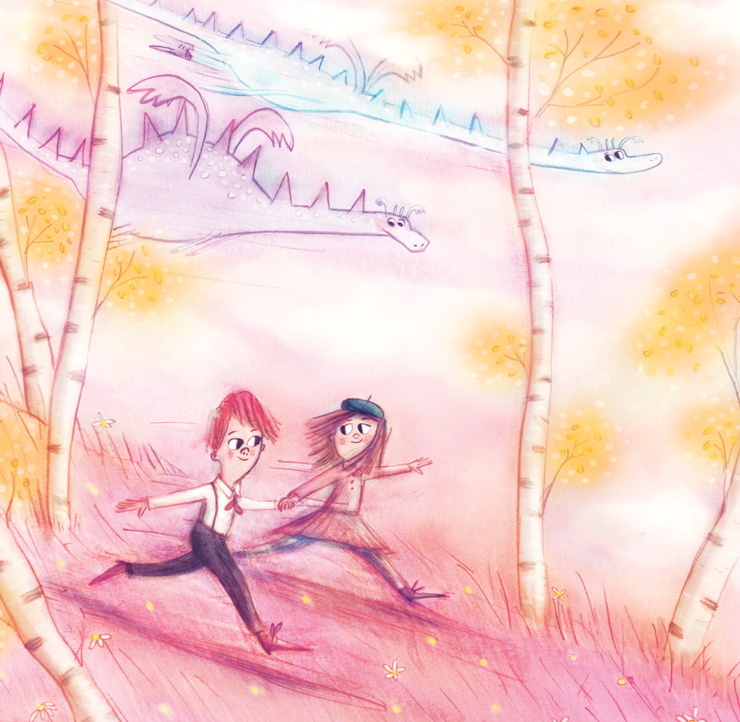
ABOUT THE ILLUSTRATOR: BIRGITTA SIF was born in Reykjavik, Iceland. She lives with her family in England. Visit her at birgittasif.com
Angie Lucas’ Recent Book:
You may also enjoy reading Life After Death: Healing Grief, Redefined by Sarah Nannen
